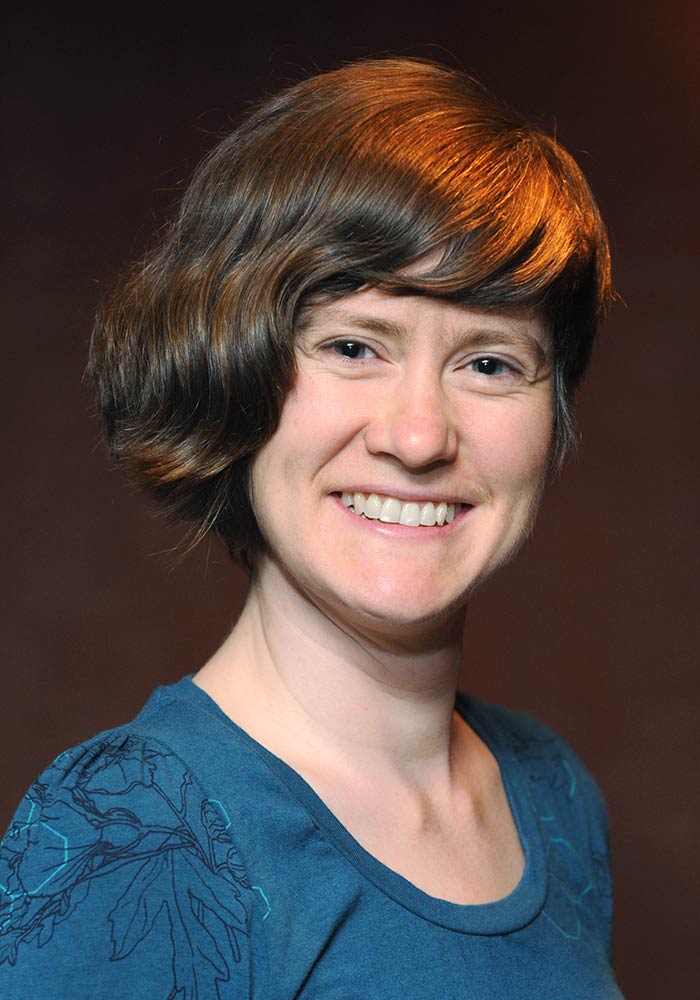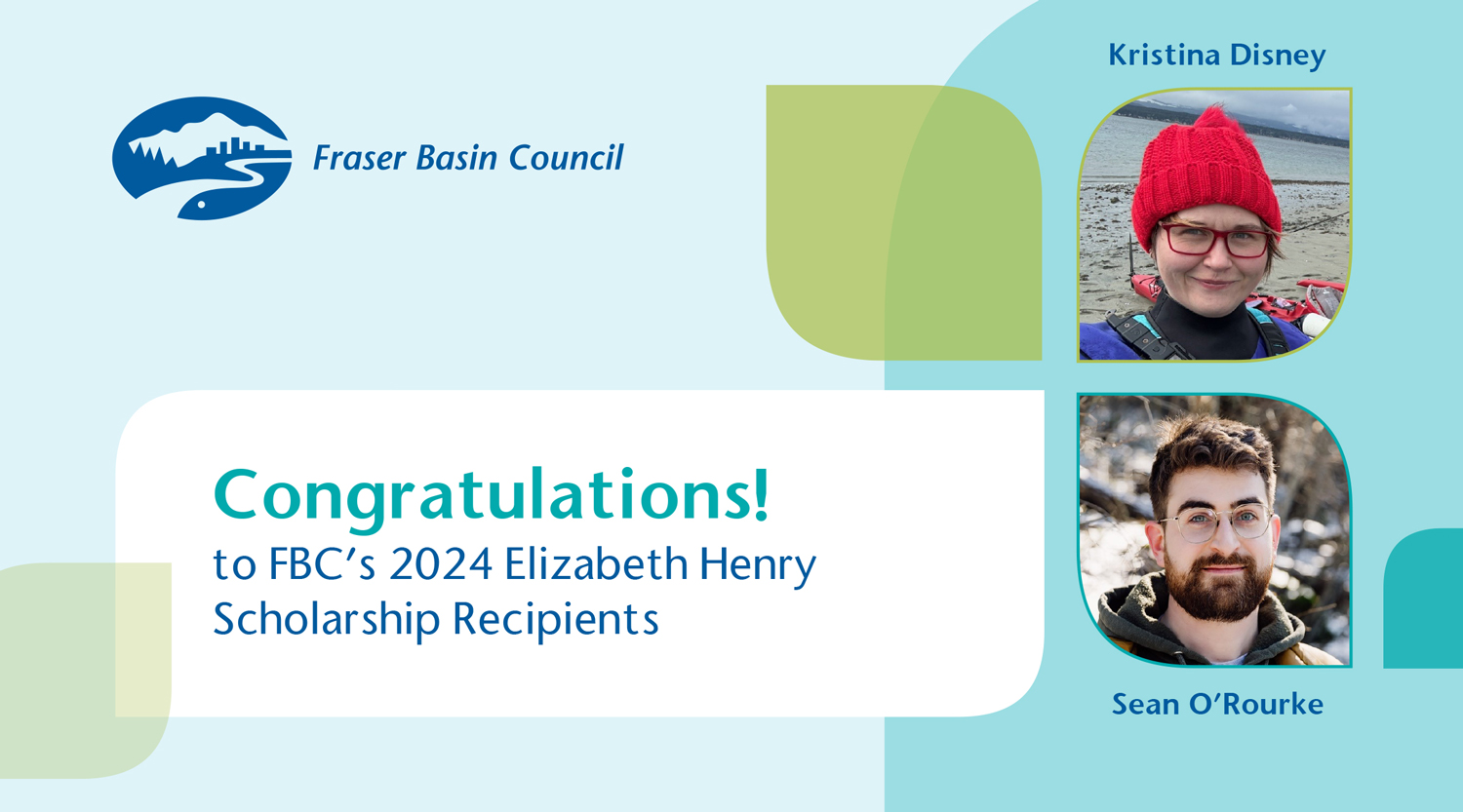Elizabeth Henry Scholarship
The Elizabeth Henry Scholarship for Communities and Environmental Health is now open for applications! Apply between January 20 and May 12, 2025.
About the Scholarship
The Elizabeth Henry Scholarship for Communities and Environmental Health supports graduate students working on research projects in partnership with one or more Indigenous and/or non-Indigenous British Columbia communities that are addressing air quality, environmental health issues and/or promoting environmental sustainability through cooperative initiatives.
A scholarship of $4,000 is offered in 2025, with the possibility of a second, smaller scholarship as funds allow.
The scholarship was created in 2014 with support from the Directors and the staff of the Fraser Basin Council to remember Elizabeth Henry and her many contributions to our organization and to communities across British Columbia. Elizabeth exhibited high ethical standards and integrity in her work, and she was committed to promoting dialogue and respectful collaboration among diverse stakeholders. The intent of the scholarship is to support community projects that reflect these values.
The Elizabeth Henry Scholarship Fund has received contributions from the Fraser Basin Council, the British Columbia Clean Air Research (BC CLEAR) Fund and the many friends, family members and colleagues who wished to remember Elizabeth and her work. Our thanks to all who have contributed.
The Vancouver Foundation administers the fund, and the Elizabeth Henry Scholarship Committee evaluates applications and awards the scholarship.
Eligibility Requirements
Application Process
To apply, please complete the 2025 Application Form by May 12, 2025.
Applications are made online. As an applicant, you will be asked to provide basic contact information, information on previous experience and a project description (max 750 words).
You will also be asked to provide digital copies of:
Evaluation Criteria
The Elizabeth Henry Scholarship Committee evaluates each application based on the following:
The decision of the committee is final. The Elizabeth Henry Scholarship Committee thanks all applicants for their interest in the scholarship.
Scholarship Committee
Here are the members of the Scholarship Committee:
Contributions Invited
The Fraser Basin Council and the Elizabeth Henry Scholarship Committee warmly thank everyone who has contributed to the Elizabeth Henry Scholarship Fund.
Contributions to the scholarship fund are always gratefully accepted through the Vancouver Foundation.
New contributions to the Fund are welcome. The Vancouver Foundation manages the Fund and will issue a charitable tax receipt for each donation of $25 or more.
To make a donation, visit the Vancouver Foundation donation page.
Sign Up for Updates
Subscribe for updates about the Elizabeth Henry Scholarship Fund for Communities and Environmental Health. And if you haven’t already, check out the projects of the 2024 and past Scholarship recipients!
Meet the 2024 Recipients!
Congratulations to 2024 Scholarship recipients, Kristina Disney and Sean O’Rourke. Learn about their projects!
About Elizabeth Henry

Remembering Elizabeth
Elizabeth was a bright light in our midst. Everyone who knew Elizabeth benefitted from her talent, her insight, and her warm, generous nature. She had a passion for making positive change in the world, and compassion for the people around her. She showed each of us what it means to be a good colleague and friend, and a good person.
Elizabeth was committed to education. She held a B.Sc. in Ecology from the University of Guelph and an M.A. in Adult Education from the University of British Columbia.
Elizabeth excelled at her work. As Program Coordinator of Climate Change and Air Quality at the Fraser Basin Council, Elizabeth was pivotal to the success of many climate change action and adaptations initiatives, and successfully facilitated various multi-interest processes. She coordinated programs to help local governments and First Nations increase their energy efficiency, reduce carbon emissions and adopt transportation demand management strategies. She also oversaw the BC Clean Air Research (BC CLEAR) Fund, which provides grants for research to support air quality in our communities.
Elizabeth loved the outdoors. We knew her to be a determined commuter cyclist who was unfazed by any weather, an avid outdoors enthusiast who loved exploring beautiful places across BC and Canada by ski, by bike and on foot, and as a gardener who graciously shared the bounty of her efforts.
Elizabeth made her passions an inspiration. She engaged people in sustainability issues that were important to them and their communities. She had a particular interest in developing relationships with Indigenous communities through the process of decolonization, which was a major focus of her Master’s degree. She worked to engage Indigenous communities in all areas of her work at FBC, helping to bridge gaps between Indigenous and non-Indigenous people. In everything she did, she strove to connect with people at the grassroots who were trying to make a difference in their communities.
Elizabeth left us too soon. Despite a brave effort to overcome illness, Elizabeth passed away in the spring of 2014 at the age of 32. The scholarship is one step towards honouring Elizabeth in the way she wished, by supporting her passion for sustainability and her desire to see good work continue.




